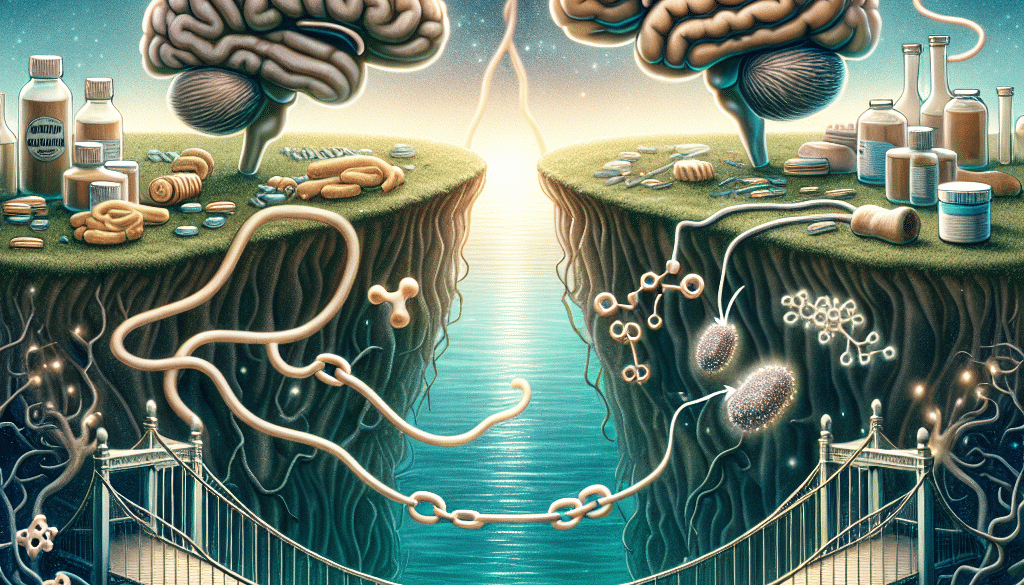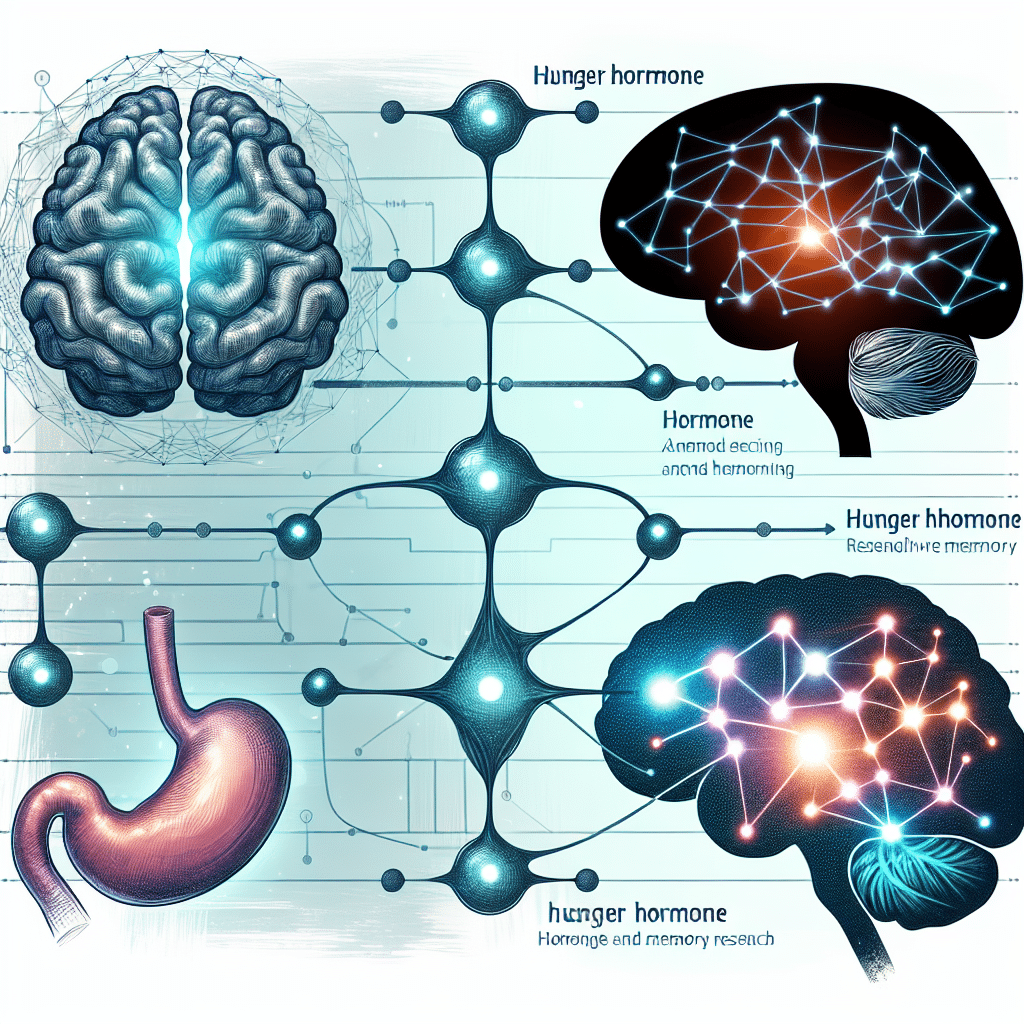Gut-Brain Axis: Hunger Hormone and Memory Link Research
-
Table of Contents
- Gut-Brain Axis: Exploring the Hunger Hormone and Memory Connection
- Understanding the Gut-Brain Axis
- The Role of Hunger Hormones
- Link Between Hunger Hormones and Memory
- Case Studies and Research Findings
- Implications for Health and Disease
- Statistics and Trends in Gut-Brain Research
- Conclusion: Key Takeaways on the Gut-Brain Axis and Memory
- Enhance Your Health with ETChem’s Protein Products
Gut-Brain Axis: Exploring the Hunger Hormone and Memory Connection
The human body is an intricate network of systems that communicate continuously to maintain homeostasis. One of the most fascinating and complex relationships within this network is the gut-brain axis, a bidirectional communication pathway that links the central nervous system with the gastrointestinal tract. Recent research has shed light on how this connection influences not only our digestive health but also our cognitive functions, particularly memory. This article delves into the role of hunger hormones in this interplay and the implications of their link to memory.
Understanding the Gut-Brain Axis
The gut-brain axis is the term used to describe the communication network that connects your gut and brain. These two organs “talk” to each other via numerous pathways, including the vagus nerve, immune system, and various hormones and neurotransmitters. This axis plays a critical role in maintaining digestive health, but it also has significant implications for mental health and cognitive functions.
The Role of Hunger Hormones
Hunger hormones such as ghrelin and leptin are key players in the gut-brain dialogue. Ghrelin, often called the “hunger hormone,” is produced in the stomach and signals the brain to stimulate appetite. Leptin, on the other hand, is known as the “satiety hormone” and is released from fat cells to suppress hunger and signal fullness. The balance between these hormones is crucial for regulating food intake and energy balance.
- Ghrelin: This hormone rises before meals and falls after eating, promoting hunger and meal initiation.
- Leptin: It provides the opposite effect, informing the brain that energy stores are sufficient and that there is no need to seek out more food.
Link Between Hunger Hormones and Memory
Emerging research suggests that hunger hormones may influence not only our eating behaviors but also our cognitive processes, including learning and memory. Studies have shown that ghrelin can enhance memory and learning in animal models, and it is believed to have neuroprotective effects. Conversely, leptin has been found to modulate synaptic plasticity, which is crucial for memory formation and learning.
Case Studies and Research Findings
Several studies have explored the connection between these hormones and brain function. For instance, a study published in the journal “Nature Neuroscience” found that ghrelin can enhance the synaptic plasticity of the hippocampus, the brain region involved in memory. Another study in “The Journal of Clinical Investigation” reported that leptin might improve cognitive performance by influencing brain-derived neurotrophic factor (BDNF), a protein that supports neuron growth and function.
Implications for Health and Disease
The interplay between hunger hormones and memory has significant implications for various health conditions, including obesity, eating disorders, and neurodegenerative diseases. Understanding this relationship could lead to novel treatments and preventive strategies for these conditions.
- Obesity: Dysregulation of ghrelin and leptin may contribute to overeating and weight gain, potentially impacting cognitive functions.
- Eating Disorders: Abnormal levels of these hormones have been observed in conditions like anorexia nervosa and bulimia, affecting both appetite and cognitive health.
- Neurodegenerative Diseases: Research suggests that ghrelin and leptin may have neuroprotective properties, offering potential therapeutic avenues for diseases like Alzheimer’s and Parkinson’s.
Statistics and Trends in Gut-Brain Research
The field of gut-brain research is rapidly expanding, with a growing number of studies highlighting the importance of this connection. According to a report by Grand View Research, the global gut-brain axis market size was valued at USD 35.7 billion in 2020 and is expected to grow at a compound annual growth rate (CAGR) of 4.5% from 2021 to 2028. This growth is driven by increased awareness of the gut-brain link and its potential impact on various health outcomes.
Conclusion: Key Takeaways on the Gut-Brain Axis and Memory
The gut-brain axis represents a critical communication network that influences both our physical and mental well-being. Hunger hormones like ghrelin and leptin are not only pivotal in regulating appetite but also play a role in cognitive functions, particularly memory. The research into this connection offers promising insights for the treatment and prevention of various health conditions, emphasizing the importance of a holistic approach to health that considers the interplay between different body systems.
Enhance Your Health with ETChem’s Protein Products
Understanding the gut-brain axis and the role of hunger hormones in memory underscores the importance of maintaining a balanced diet and healthy lifestyle. ETChem’s protein products can be a valuable addition to your nutritional regimen, providing high-quality proteins that support overall health and well-being. Whether you’re looking to improve your digestive health, cognitive function, or manage your weight, ETChem offers a range of collagen products to meet your needs.
About ETChem:
ETChem, a reputable Chinese Collagen factory manufacturer and supplier, is renowned for producing, stocking, exporting, and delivering the highest quality collagens. They include marine collagen, fish collagen, bovine collagen, chicken collagen, type I collagen, type II collagen and type III collagen etc. Their offerings, characterized by a neutral taste, instant solubility attributes, cater to a diverse range of industries. They serve nutraceutical, pharmaceutical, cosmeceutical, veterinary, as well as food and beverage finished product distributors, traders, and manufacturers across Europe, USA, Canada, Australia, Thailand, Japan, Korea, Brazil, and Chile, among others.
ETChem specialization includes exporting and delivering tailor-made collagen powder and finished collagen nutritional supplements. Their extensive product range covers sectors like Food and Beverage, Sports Nutrition, Weight Management, Dietary Supplements, Health and Wellness Products, ensuring comprehensive solutions to meet all your protein needs.
As a trusted company by leading global food and beverage brands and Fortune 500 companies, ETChem reinforces China’s reputation in the global arena. For more information or to sample their products, please contact them and email karen(at)et-chem.com today.





